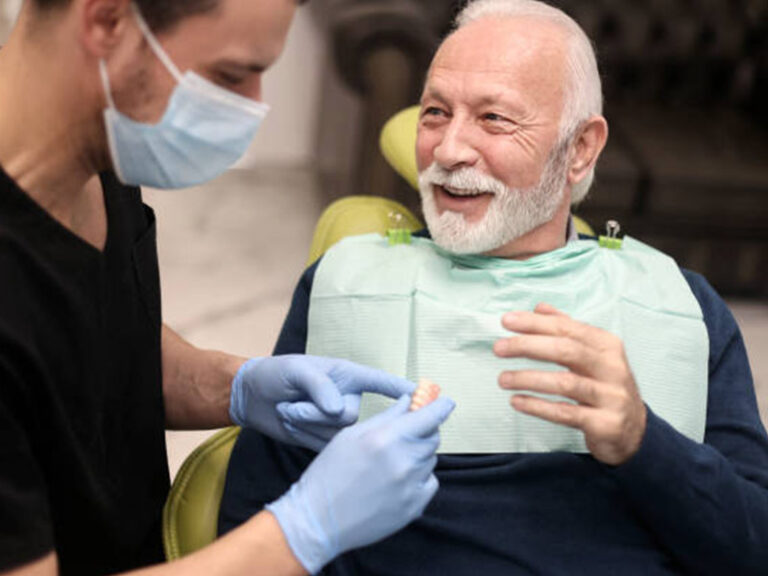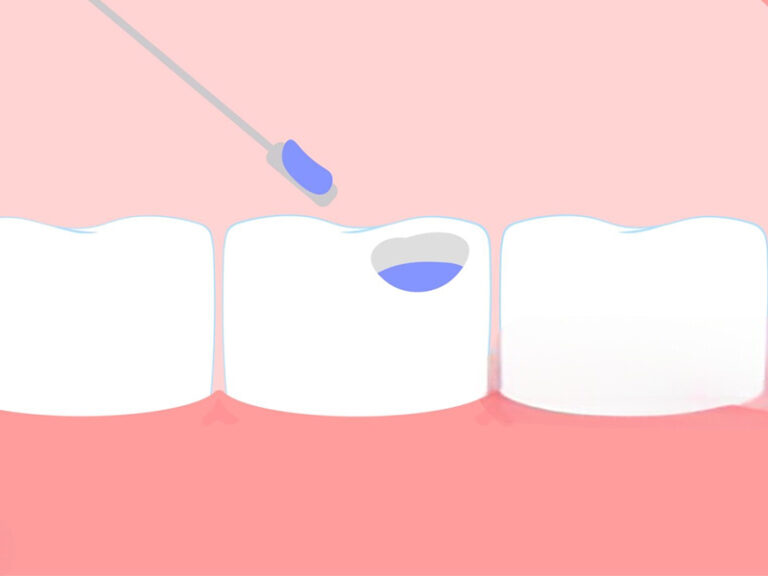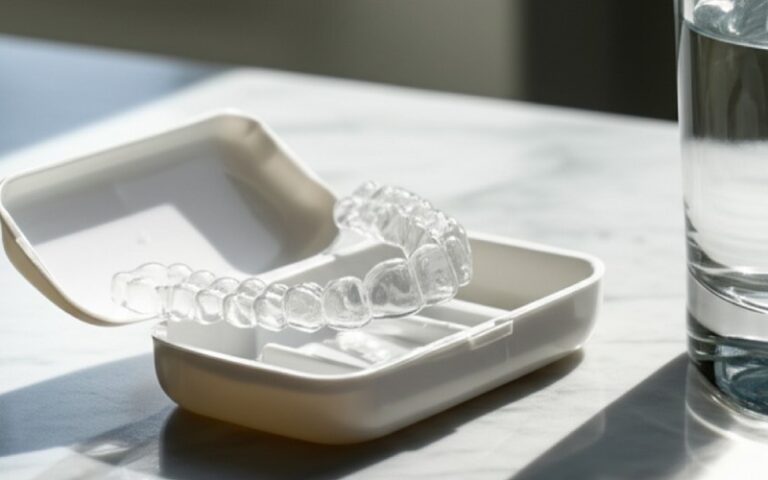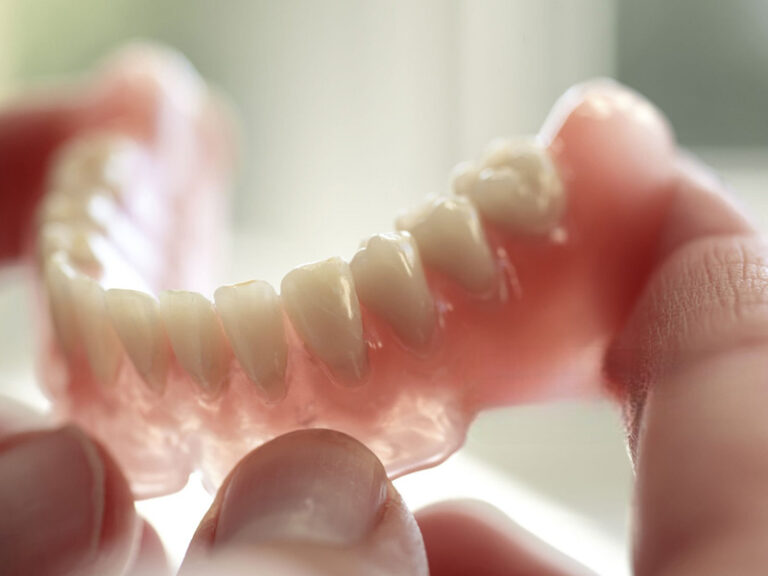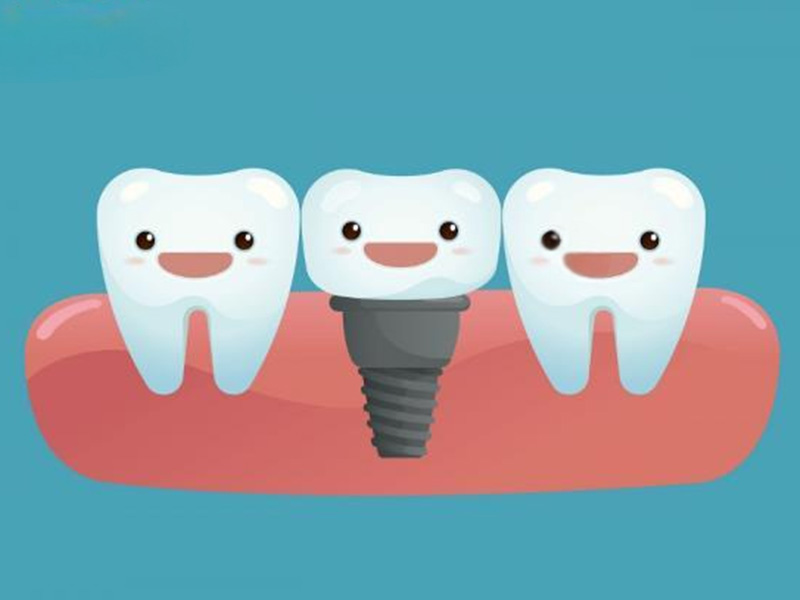
Simple Plan to Prevent Tooth Decay and Stop Cavities in Their Tracks
This article will share my simple, easy-to-follow plan that can help your teeth healthy. You’ll learn how a cavity forms, how to stop decay before it starts, and why your oral health is so important. This guide will help you take control of the care of your teeth and teach you how to prevent tooth decay.
Table des matières
What Exactly Is Tooth Decay, and Why Did It Bother Me?
Nothing is worse than hearing your dentist say, “Well, it looks like you have another cavity.” Tooth decay is a disease that damages your teeth. According to the Centers for Disease Control and Prevention, it’s one of the most common chronic diseases for people of all ages. This decay can cause a lot of problems if you don’t stop it. It can happen to anyone, even babies, in a form called baby bottle tooth decay.
The problem starts with the bacteria in your mouth. These tiny germs eat sugars from the food you eat. When they do, they make acid. This acid is the real enemy of your oral health. It eats away at the hard outer layer of your teeth. This process is what we call tooth decay. At first, you might not notice it, but over time, it creates a hole in your tooth. That hole is a cavity.
How Does a Cavity Form from a Little Decay?
It seems like it happens overnight, but it’s a slow process. It starts with something called dental plaque. Plaque is a sticky film of bacteria that is always forming on the surfaces of your teeth. When you eat sugary or starchy food and drinks, the bacteria in the plaque go to work, making acid. This acid attacks the tooth surface again and again. These acids can be very bad for your teeth.
The first target of this acid is your tooth enamel. The enamel is the hard, protective outer layer of our teeth. Think of it as a shield. The acid removes minerals from the enamel of your teeth in a process called demineralization. Over time, this weakens your tooth enamel. Eventually, a hole, or cavity, forms. If the decay gets worse, it can go deeper into the softer layer of your teeth and even reach the nerve. That can cause pain, a bad toothache, and lead to serious infection and even tooth loss.
Can You Really Stop Tooth Decay in Its Early Stages?
Yes, you can stop tooth decay in its early stages. In the very early stages of tooth decay, before a real cavity has formed, the damage can be reversed. Your body can use minerals from your saliva, and from fluoride, to repair the enamel. These early warning signs might look like white spots on your teeth. The decay may not have broken through the enamel yet.
This is where fluoride is your best friend. Using a fluoride toothpaste helps put minerals back into your enamel. It makes your teeth stronger and more resistant to acid attacks. If your dentist catches the decay in its early stages, they can often reverse it before small cavities form. Finding early tooth decay is key. Early detection and treatment can prevent a small problem from becoming a big, painful cavity. It’s how you can stop tooth decay for good.

What Is the Best Way to Clean Your Teeth?
You’ve heard it a million times, but it’s the foundation of good oral hygiene: brushing and flossing. You must brush your teeth at least twice a day. The simple rule is to brush your teeth twice a day. This simple habit removes the plaque that causes decay. When you brush, you clean the front teeth, the back teeth, and all the chewing surfaces of teeth.
But you can’t just brush. You also have to floss. Flossing, or using another tool to clean between your teeth, is just as important. It gets rid of plaque and food that your toothbrush can’t reach. A lot of decay starts between the teeth where food gets stuck. Making sure you brush and floss every day is the best thing you can do for your teeth. It’s the core of any plan to prevent cavities.
How Does Saliva Help Prevent Tooth Decay?
Your saliva is a natural defense against tooth decay. It does a few amazing things. First, it helps with the process of tooth decay by washing away food particles that stick to your teeth. Less food for the bacteria means less acid. This is a great way to prevent decay.
Second, saliva helps prevent tooth decay by neutralizing the acids that bacteria produce. It contains minerals like calcium and phosphate that help rebuild your enamel. So, a healthy flow of saliva is constantly working to help prevent decay. It’s amazing to think that saliva helps prevent tooth decay every minute of the day. This process of decay by washing away food is a natural way to help your mouth.
Is Dry Mouth a Big Problem for Your Dental Health?
Since saliva is so important, not having enough of it can be a big problem. This condition is called dry mouth. When you have a dry mouth, you don’t have enough saliva to wash away food and neutralize acid. This can seriously increase your risk of tooth decay. Certain medicines, health conditions, or even aging can cause dry mouth.
If you have a dry mouth, you need to be extra careful about your dental care. Talk to your dentist or doctor. They might suggest you chew sugar-free gum or use an artificial saliva product. Drinking plenty of water throughout the day can also help. Managing dry mouth is critical for preventing a lot of dental decay.
What Are Dental Sealants and How Do They Help Prevent Cavities?
One of the best tips is about dental sealants. A sealant is a thin, plastic coating painted onto the chewing surfaces of your molars. The back teeth have lots of tiny grooves and pits where food and germs can hide. These spots are hard to clean with a brush, making them common areas of tooth decay.
The sealant flows into these grooves and hardens, creating a smooth, protective shield over the tooth’s enamel. This dental sealant acts as a barrier. It keeps food and bacteria out, which helps prevent decay from starting in the first place. The Disease Control and Prevention says sealants can prevent a huge number of cavities in molars. It’s a simple, painless way to protect your teeth from decay for years.
Why Is Visiting Your Dentist So Important for Your Oral Health?
You need to see your dentist for regular dental checkups and cleanings. A dentist or dental hygienist can remove hardened plaque, called tartar, that you can’t get off with a brush. They are experts in oral health.
Your dentist can spot the early signs of a cavity, sometimes before you feel any pain or tooth sensitivity. The common symptoms like a toothache might not even have started. The dentist may use x-rays to see decay between teeth or under fillings and knows how to treat cavities effectively. Catching a cavity early means the treatment is usually simpler and less expensive. If you need help, you can find low-cost dental care in many communities. Don’t wait until it becomes a problem; your dentist is your partner in maintaining healthy teeth and gums.
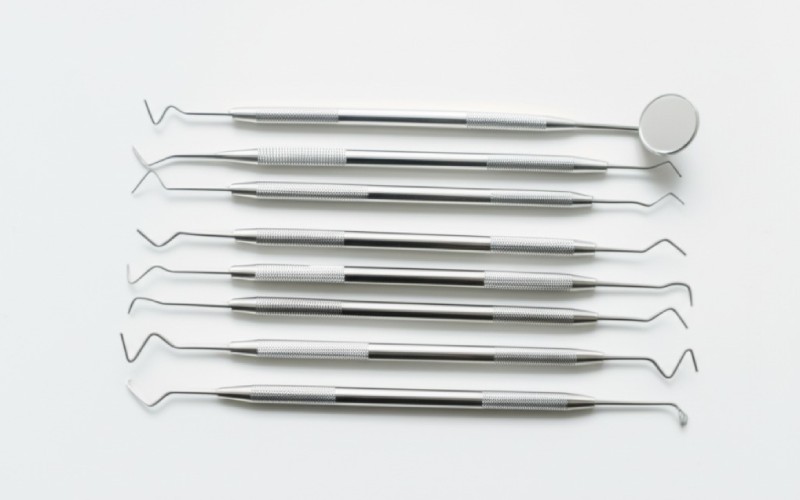
What Foods and Drinks Contribute to Cavities and Tooth Decay?
What you eat and drink has a huge impact on your risk of tooth decay. Sugary food and drinks are the biggest culprits. Things like soda, candy, cookies, and even fruit juice feed the bacteria that cause decay. The more you snack on these things, the more acid attacks your teeth have to endure. This can lead to a new cavity.
It’s not just sugar. Starchy foods like chips, bread, and crackers can also contribute to tooth decay. These foods can get stuck on your teeth for a long time, giving bacteria a long-lasting feast. Rinsing with water after eating can also help wash away some of the food particles. This is important for your teeth.
My Final Thoughts on Long-Term Prevention of Tooth Decay
Learning how to prevent tooth decay has been a journey. It’s not about one single trick. It’s about building a routine of good oral hygiene. It’s about brushing with a fluoride toothpaste, flossing daily, seeing your dentist, and being mindful of what you eat. This commitment is how you get strong teeth that last a lifetime. Taking care of your permanent teeth is so important. This process helps you avoid things like tooth loss. Missing teeth can affect how you chew and speak.
If you want to learn more, great resources are available. The National Institute of Dental and Craniofacial Research is a wonderful source of information. The work from the institute of dental and craniofacial research has helped so many people. They provide facts about everything from a cavity to the different stages of tooth decay.

